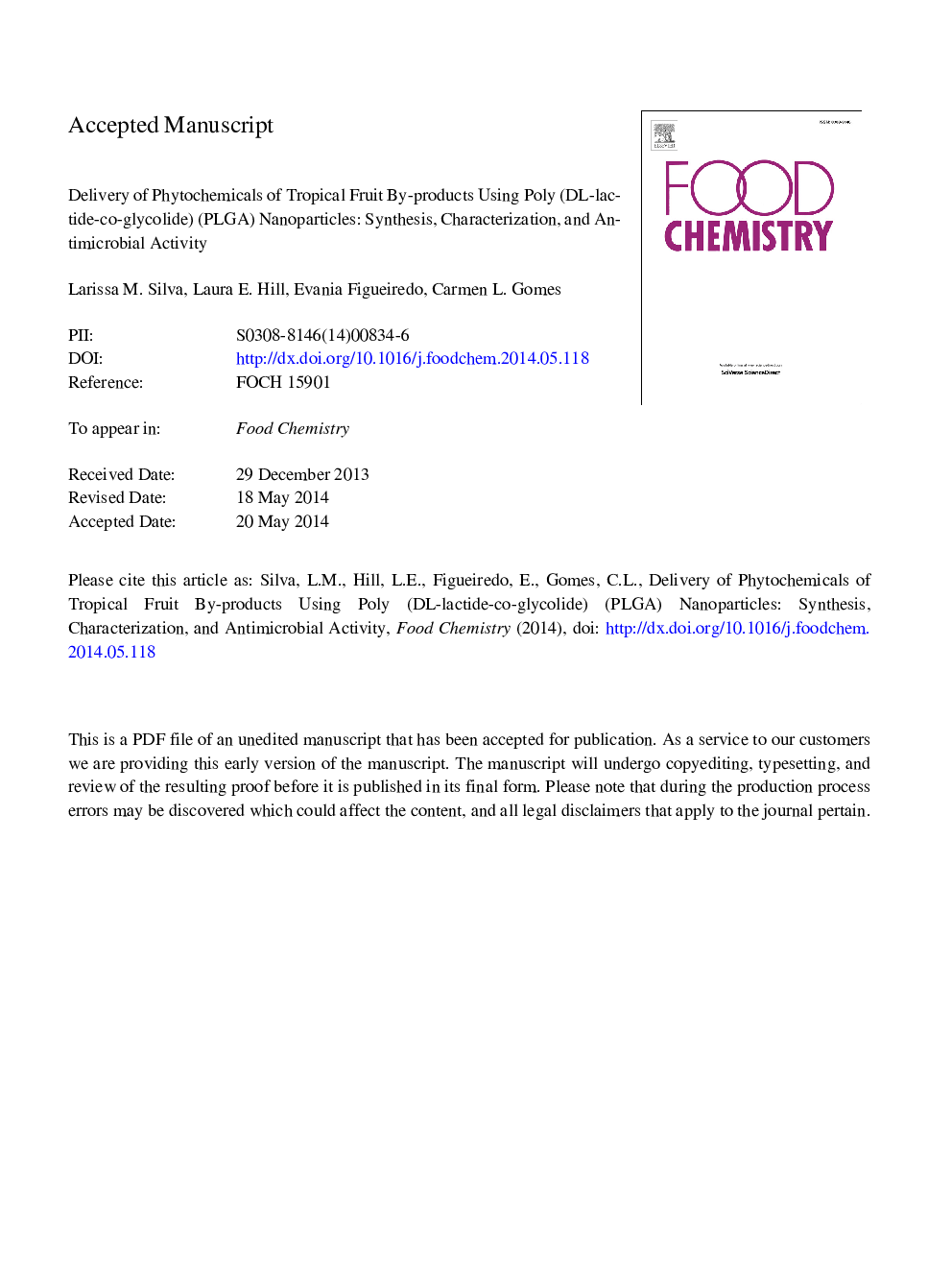| Article ID | Journal | Published Year | Pages | File Type |
|---|---|---|---|---|
| 7595988 | Food Chemistry | 2014 | 34 Pages |
Abstract
Nanoencapsulation offers great potential in natural compounds delivery as it protects them from degradation, improves their aqueous solubility, and delivers active compounds to the action site. Poly (dl-lactide-co-glycolide) (PLGA) nanoparticles of acerola, guava, and passion fruit by-product extracts were synthesized using the emulsion-evaporation method. PLGA with different lactide to glycolide (50:50 and 65:35) ratios were used to determine how polymer composition affected nanoparticles properties and antimicrobial efficiency. Controlled release experiments showed an initial burst followed by a slower release rate for all encapsulated fruit by-products inside PLGA matrix. Nanoparticle properties were more dependent on by-product extract than on PLGA type. Fruit by-products and their nanoparticles were analyzed for antimicrobial activity against Listeria monocytogenes Scott A and Escherichia coli K12. All fruit by-products encapsulated in PLGA inhibited both bacteria at lower (PÂ <Â 0.05) concentration than corresponding unencapsulated fruit by-product. Both PLGA types improved fruit by-products delivery to pathogens and enhanced antimicrobial activity.
Keywords
Related Topics
Physical Sciences and Engineering
Chemistry
Analytical Chemistry
Authors
Larissa M. Silva, Laura E. Hill, Evania Figueiredo, Carmen L. Gomes,
